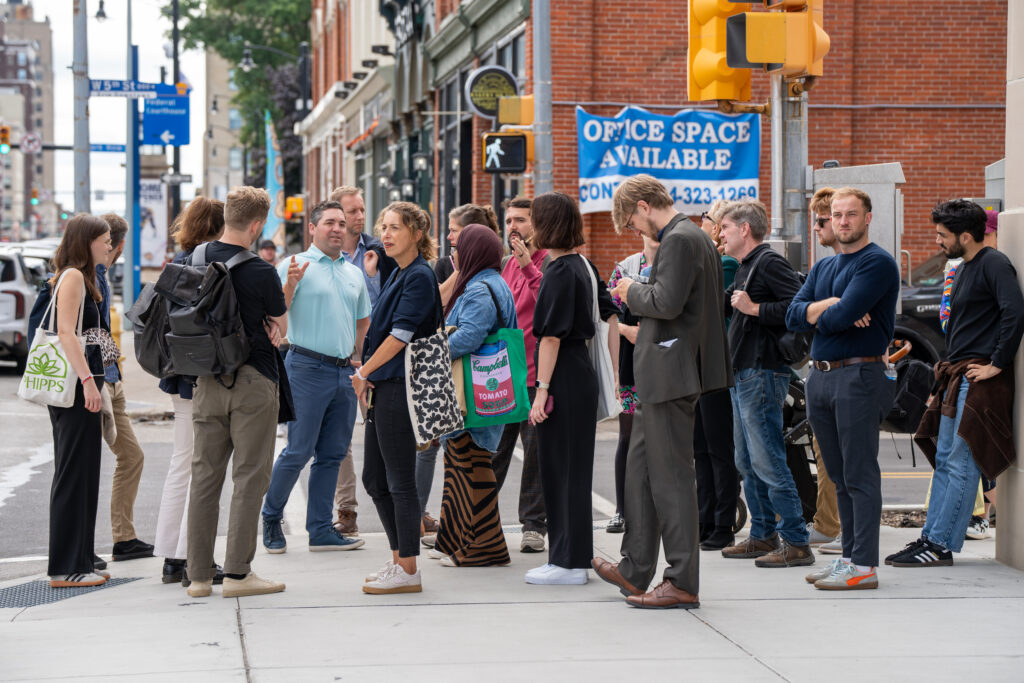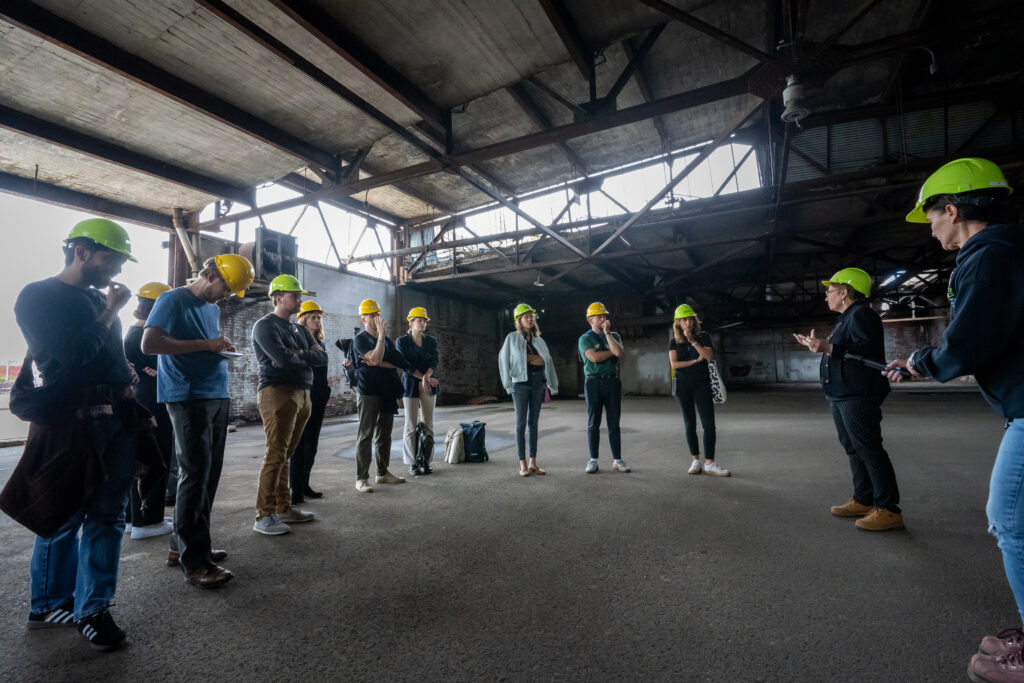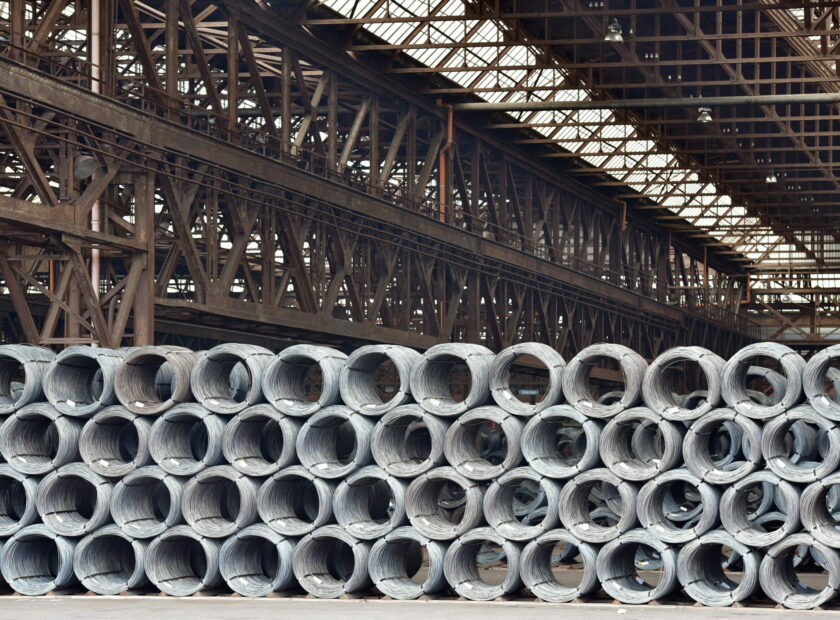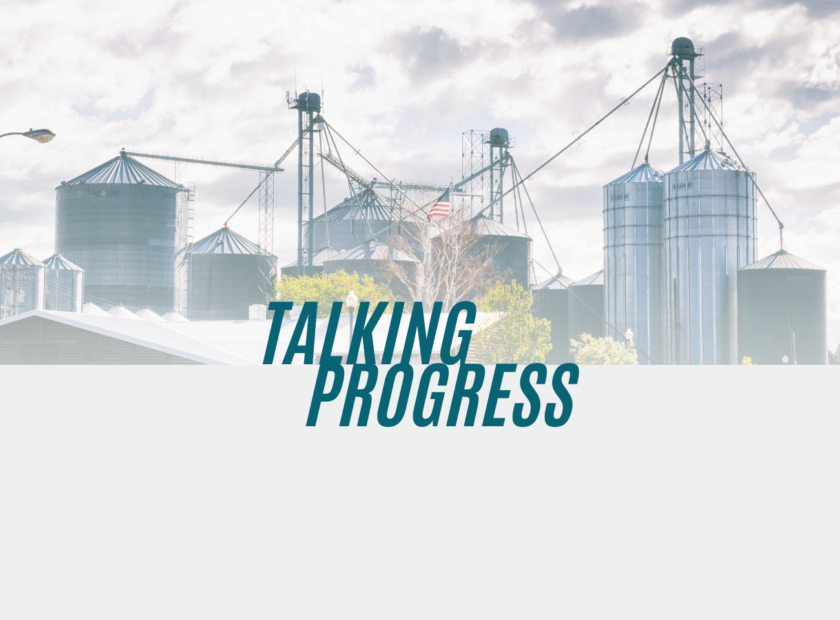Author: Axel Ruppert
Four weeks prior to the US elections and together with the fellows of our Industrial Heartlands project, we toured crucial electoral battlegrounds in Pennsylvania, Ohio and Michigan. This synopsis highlights remarkable efforts to revitalise these once thriving centres of industrial manufacturing – and the remaining challenges that we saw.
Invest in the future, do not cling on past industries – but acknowledge their heritage
The city of Pittsburgh, Pennsylvania, has managed an impressive transformation from a dirty steel producing city with lethal air quality to a regional high-tech hub. While steel production continues at a smaller scale, universities and newly founded companies drive innovation in robotics, AI and computer and medical science. This is no coincidence, but a deliberate strategy to not get stuck in politics of nostalgia and an industrial past that won’t come back. Instead, the city has built on its assets – not least the massive capital stocks of its former steel magnates – and found new ways forward. And it seems to be working out: Air quality drastically improved, universities attract younger people who increasingly stay and our conversations with residents left us with a feeling of confidence when it comes to the city’s future.
Nevertheless, the massive decline that Pittsburgh and the wider region experienced since the late 1970s left deep scars among its residents. Psychiatrist and Pittsburgh local Kenneth S. Thompson told us about the psychological long-term effects of the region’s deindustrialisation. They often show “unspoken shame and articulated anger that expresses a sense of being mistreated and displaced with a desire for revenge and restoration – taking back what is felt to have been stolen.” Thompson is convinced that acknowledging the decline as a societal and economic failure rather than an individual one as well as collectively remembering the price workers have once paid to build the economic backbone of the US, is key in reconciling with the past and overcoming such consequential feelings as shame.
Prospering cities, struggling regions
Another example of remarkable revitalisation is Erie’s city centre. Located at Lake Erie in Northwest Pennsylvania, the city faced decades of decline since the 1970s that left downtown in a precarious state. In only a few years, Erie’s Downtown Development Corporation, a non-profit organization founded in 2017, managed to refurbish buildings as loft apartments, bring in local businesses and open the Flagship City Food Hall, a climbing gym and the first downtown grocery store in decades.

A similar astonishment accompanied us when strolling through Youngstown’s refurbished downtown, leaving us with the question: What happens beyond the renaissance of city centres?
Youngstown, located in Ohio’s East, lost 64% of its population since 1960 and has since then been struggling with its large neighbourhoods falling apart. Touring these with the Youngstown Neighborhood Development Corporation (YNDC) gave an account of how big a task it is to revitalise the city beyond its centre. Tackling it street by street, mobilising funding from various sources to rebuild homes and involving residents all along, YNDC is an impressive example of a grassroots nonprofit turning the page.

When leaving the cities’ perimeter, we were reminded of a quote from our meetings in Youngstown: “Cities like Pittsburgh are islands in places of economic distress”. A revitalisation that betters the daily lives of all those living outside bustling city centres remains a massive task. The election results in this decisive swing state mirror this rural-urban gap, with Biden winning Pennsylvania in 2020 thanks to votes from cities and metropolitan areas, while most of the state appears red on the electoral map. This year, Erie County may be one of the decisive counties for the presidential election.
The economy is centre – climate is not
The key issue in this year’s presidential election has been omnipresent during our conversations: economic prospects and the ability to afford quality life for yourself and your family. At the same time, climate protection and the green transformation appear as side-notes and seem only relevant when resulting in tangible economic benefits.
When discussing with local union leaders in Youngstown, we were reminded of the deep shocks workers went through – not only following the 1970s, but also the havoc caused by the 2008 financial crisis – and the consequent scepticism towards transformation and potential future losses. Nevertheless, we also discussed the pride that workers still have and their determination to “put ourselves back on the map”. We will see on election day and in the days to come whether the Democrats managed to appear as a credible ally in this quest.
About the Author

Axel Ruppert is project manager overseeing international projects on socio-ecological transformation in the focus areas “Green New Deal” and “Resilient Democracy” of Das Progressive Zentrum. Previously, Axel worked in Brussels at the office of the Rosa Luxemburg Foundation and at the European Network of Equality Bodies (EQUINET) and European Network Against Racism (ENAR). He holds a Bachelor of Arts in Political Science from Marburg University and a Master of Arts in European Studies from Aarhus University.




